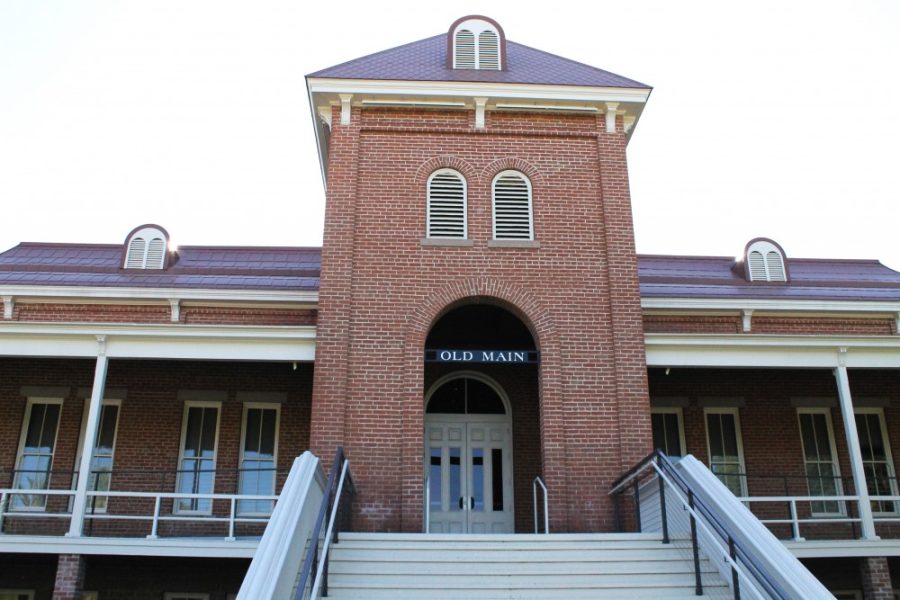On Sept. 19, over 60 people met to relaunch ideas about what the university can accomplish at the Hispanic-Serving Institution Community Forum.
In spring 2018, the University of Arizona was designated a Hispanic-Serving Institution upon meeting certain requirements such as having 25 percent or more of the population being Hispanic. With this designation, the HSI Community Forum gathered to focus attention on current issues such as diversity on campus and advanced new resources for Hispanic students.
“This is the U of A’s first time to be engaged in HSI week,” said Marla A. Franco, executive director of assessment for research and grant development. New opportunities afforded to the university by becoming an HSI will include student support services, supplemental grants and new research collaborations and partnerships.
What Has Already Been Discussed and/or Accomplished
The forum searched for community input, receiving responses of what can be done for UA students. Some suggestions included:
- Institutional Commitment
- Faculty and Staff Training
- Diverse Faculty
- Student Support
- Partnership Development
There were many examples of how UA has already began utilizing its resources as an HSI, even striving to follow some of the very guidelines discussed in the forum.
RELATED: UA to host National Conference on Hispanics in STEM
“A number of my colleagues … helped create a partnership at Guerrero Student Center to open a wing focused on immersing students in their culture and heritage,” said Franco.
She also mentioned the community helping Hispanic students and families move onto campus at the beginning of the school year, as well as providing them with dinner after the event.
Along with her examples, Franco also invited a few guest speakers to present what they and their colleagues have already contributed, using the resources and opportunities the HSI designation provides.
Guest Speakers Expand Upon Campus Progress
The first presentation involved how the HSI contributes to STEM majors. The goal in this is to encourage equity, diversity and culturally responsive practices.
“[The HSI Program] held sessions with a variety of institutions nationwide. They also brought several administrators from the universities to be seen and, as the last thing they did, they funded 11 total conferences, which will be running through December of this year,” said Guada Lozano, director of external relations & evaluation in the School of Mathematical Sciences. “We got awarded the first conference November [of 2017].”
Partly on account of this conference, the University knew both how to take steps toward becoming an HSI and the value in doing so.
Along with her colleague assistant professor at the Departments of Biomedical Engineering and Systems and Industrial Engineering Vignesh Subbian, Lozano also informed the forum about what UA plans to accomplish with the new grants afforded by HSI status. This includes programs such as mentorships, internships and research.
Jennifer Fields, research development associate, presented the second example. She focused predominantly on research and how the university can accomplish further research in even more fields with HSI designation.
“What Research Development Services does, specifically, is work one-on-one with faculty, staff and teams to help them as they are developing proposals for funding,” she said. “We’ve talked early today about the rich and diverse and the varied landscape of the types of work that can be done in service of the HSI mission.”
With the goals of HSI in mind, Daniel Gonzales, the senior academic advisor of the College of Letters, Arts and Science, advised the university population to challenge its implicit biases for the betterment of the community at UA.
RELATED: UA continues working to include large Hispanic community
“We are always looking at how we can better advise our students,” said Gonzales, who says he believes that, by advisors listening to students talk about their emotional needs, financial needs and more, the university can help students take a step in the right direction towards having a better college experience.
The last example discussed the Inclusive Leadership Program, an organization that focuses on students of all backgrounds obtaining the skills required to succeed in college and beyond. Mentioned in the program are events such as an Inclusive Leadership Cohort and project-based leadership opportunities and developments.
The Future of HSI Designation at UA
While student-leaders are taking initiative to use HSI designation for the betterment of students and faculty, there are still some people who question whether or not these initiatives will succeed in making beneficial changes, according to Franco.
There is still, of course, uncertainty about how greatly the HSI resources will really add to students’ overall well being. Despite such questions, the future of the HSI mission at UA seems promising because of the determination of UA advisors and administrators.
“We’ve had a strong start,” said Franco. “I’m even more excited [to see] where we’ll go.”
For more information about HSI and HSI efforts on campus, please visit:
https://uanews.arizona.edu/story/ua-recognized-service-hispanic-students
Follow Lauren Albrecht on Twitter









